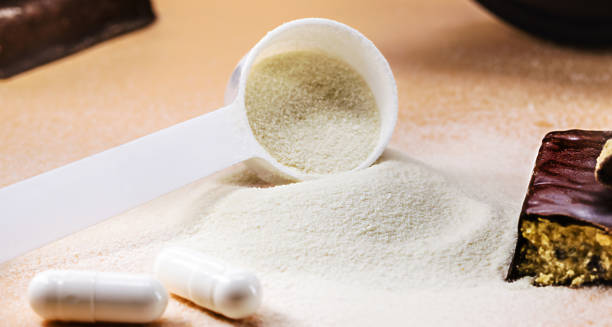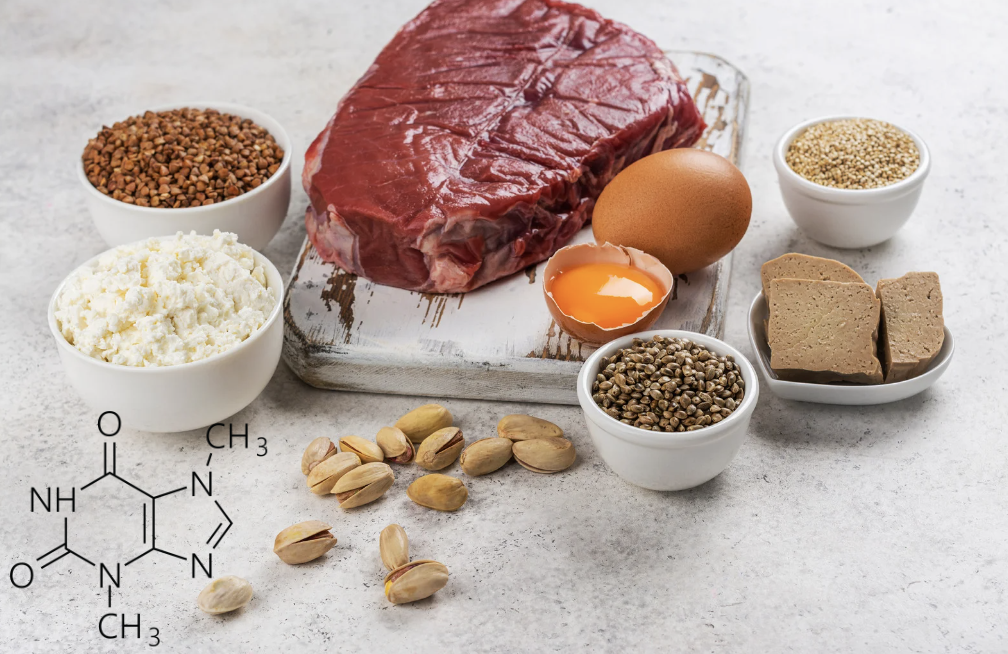Drugs and Medications
Does Amino Acids Have Caffeine
Interested in learning more about the relationship between coffee and amino acids? When it comes to your search for answers, you are not alone. A lot of people are curious in whether or not amino acids contain caffeine, or whether or not consuming amino acids can have a similar impact on feelings of energy. In the following paragraphs, we will investigate this subject and distinguish between reality and fiction.
Understanding Caffeine and Its Effects
It is common knowledge that caffeine is a stimulant that can boost one’s ability to concentrate and remain alert. Many beverages, including coffee, tea, and energy drinks, as well as certain meals and pharmaceuticals, include it. It is also present in some energy drinks. Consuming caffeine has the effect of inhibiting the actions of adenosine, a neurotransmitter that is responsible for promoting calm. Caffeine acts on the central nervous system. Consequently, this results in a brief reduction in weariness as well as an increase in wakefulness.

Common Sources of Caffeine
Let’s take a look at some common locations where caffeine can be found before we move on to discussing the connection between amino acids and caffeine. As was said before, coffee and tea are two of the most extensively used liquids that contain caffeine. Among the other sources are chocolate, energy drinks, soft drinks, and some medications, notably those that are used for the treatment of headaches or migraines. It is essential to keep in mind that the amount of caffeine included in various products can vary substantially; therefore, it is important to carefully check the label if you are unclear.
The Connection Between Amino Acids and Caffeine
Amino acids are the building blocks of proteins and are essential for many biological activities. While caffeine does not occur naturally in amino acids, certain amino acids can have an indirect effect on energy levels. This is due to the fact that some amino acids, such as tyrosine and phenylalanine, have a role in the manufacture of neurotransmitters such as dopamine and norepinephrine. These neurotransmitters are linked to better mood and more energy.
Exploring the Role of Amino Acids in the Body
Let’s look at the role of amino acids in the body to better understand their relationship with energy. Protein synthesis requires amino acids, which are required for tissue repair, maintenance, and development. They also help to produce enzymes, hormones, and neurotransmitters, which are all crucial for overall health and well-being. Furthermore, amino acids participate in energy metabolism, which means they aid in the conversion of nutrients into useful energy for the body.

Do Amino Acids Contain Caffeine?
Caffeine does not occur naturally in amino acids. Caffeine is a distinct chemical molecule that is not related to amino acids. Certain amino acids, on the other hand, can indirectly alter energy levels by promoting the creation of neurotransmitters involved in mood and energy management. While amino acids may have an indirect effect on energy, they do not deliver a caffeine-like surge.
Amino Acids That Can Provide an Energy Boost
While amino acids will not directly deliver a caffeine-like spike, certain amino acids may aid support energy levels. Tyrosine and phenylalanine, two previously stated amino acids, are precursors of dopamine and norepinephrine. These neurotransmitters play a role in mood, motivation, and attention regulation. You can support the creation of these neurotransmitters and thus feel increased energy and focus by providing an appropriate supply of these amino acids.
Benefits of Consuming Amino Acids and Caffeine Together
The combination of caffeine and amino acids may bring extra benefits, particularly if you are looking to increase your levels of energy. There is evidence that caffeine enhances the effects of amino acids, particularly when they are consumed during physical activity. During time spent engaging in strenuous physical activity, it can help with endurance, fatigue, and concentration. In addition, the combination of coffee and amino acids may have a synergistic effect on mood and cognitive function, which would result in an even greater increase in energy and mental clarity.

Recommended Dosage and Safety Considerations
When eating amino acids in addition to caffeine, it is essential to pay close attention to the dosage as well as the safety issues involved. It is important to note that the recommended intake of amino acids differs depending on the specific amino acid as well as individual criteria such as age, weight, and overall health. Contacting a healthcare practitioner or a trained nutritionist is always recommended in order to determine the appropriate dosage for your specific requirements.
The consumption of caffeine in moderation is generally considered to be harmless for the vast majority of individuals. Consuming an excessive amount of caffeine, on the other hand, might result in undesirable side effects such as agitation, anxiety, insomnia, and an increased heart rate. In order to prevent exceeding the recommended limits for caffeine consumption, which are typically around 400 milligrams per day for adults, caffeine use should be monitored.
Conclusion
Even though amino acids don’t naturally contain caffeine, certain amino acids can indirectly influence energy levels by supporting the production of neurotransmitters related to mood and energy regulation. The combination of amino acids with caffeine may bring additional benefits, especially for exercise performance and cognitive function. However, it’s crucial to consider dosage and safety guidelines to ensure responsible consumption.
If you’re contemplating the inclusion of amino acids or caffeine in your routine, it’s always wise to consult with a healthcare professional or a registered dietitian. They can offer personalized advice tailored to your specific needs and assist you in making informed choices regarding supplementation and overall nutrition. By grasping the connection between amino acids and caffeine, you can optimize your energy levels and contribute to your overall health and well-being.
Remember, knowledge is power, and being well-informed empowers you to make the best decisions for your body and lifestyle.


